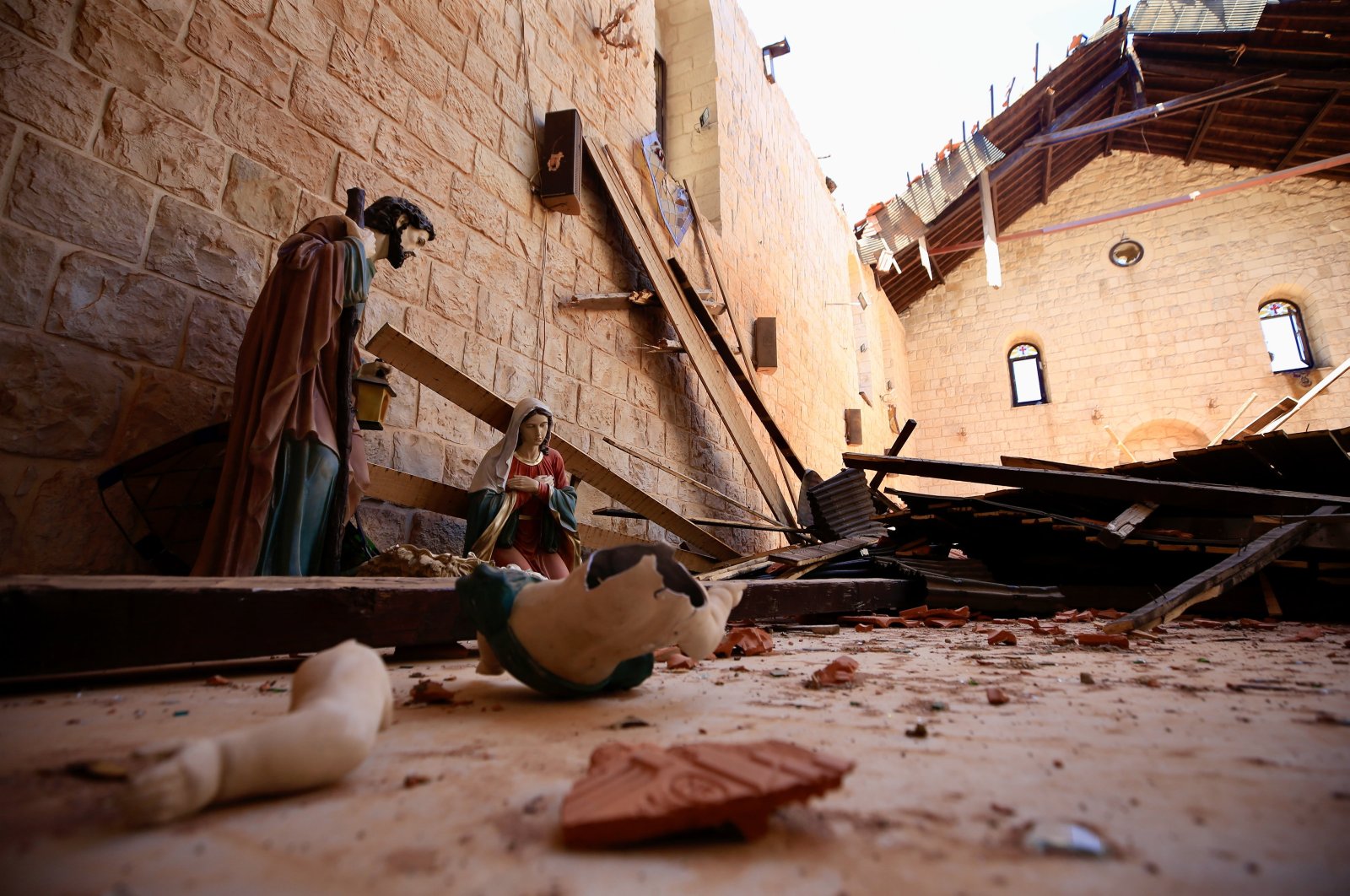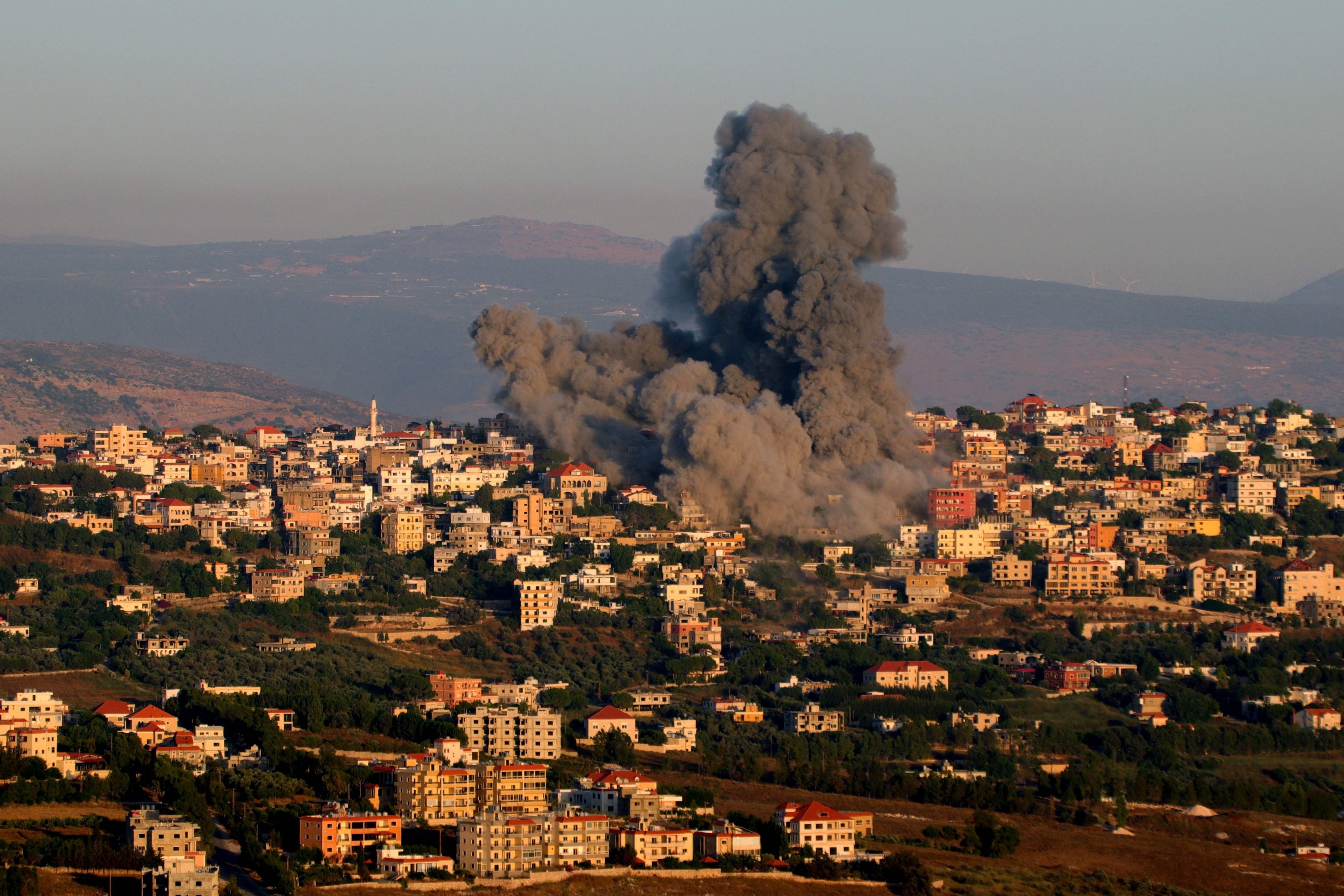
Two senior European diplomats voiced concerns Monday over a potential spillover of Israel’s Gaza war into Lebanon as Tel Aviv-Hezbollah tensions continued to climb.
European foreign policy chief Josep Borrell said that the Middle East was close to seeing a wider war.
"The risk of this war affecting the south of Lebanon and spilling over is every day bigger," Borrell told reporters ahead of a foreign ministers meeting in Luxembourg.
"We are on the eve of the war expanding."
Tensions have soared along Lebanon's border with Israel amid cross-border attacks between Hezbollah and Israeli forces.
The Iran-backed group has said it would not stop until there is a cease-fire in Gaza, where Tel Aviv has killed more than 37,600 Palestinians since the Oct. 7 Hamas incursion.
Earlier in June, Hezbollah targeted Israeli towns and military sites with the largest volleys of rockets and drones in the hostilities so far, after an Israeli strike killed a senior commander of the group.
Hezbollah chief Sayyed Hassan Nasrallah last week said nowhere in Israel would be safe if a full-fledged war broke out between the two foes and also warned the Greek Cypriot administration against aiding Israel.
Greek Foreign Minister George Gerapetritis condemned it as absolutely unacceptable to make threats against a European Union member.
Meanwhile, German Foreign Minister Annalena Baerbock said Monday the situation between Israel and Hezbollah was very worrying and she would travel to Lebanon soon.
"A further escalation would be a catastrophe for people in the region," she said.

Lebanon next?
The warnings come a day after Israeli Prime Minister Benjamin Netanyahu said Israel was winding down its current phase of the Gaza war, setting the stage for it to send more troops to the northern border with Lebanon.
The comments further heightened Israel-Hezbollah tensions at a time when they appear to be moving closer to war.
Netanyahu said in a lengthy TV interview that while the army is close to completing its current ground offensive in the southern Gaza city of Rafah, that would not mean the war is over. But he said fewer troops would be needed in Gaza, freeing up forces to battle Hezbollah.
"We will have the possibility of transferring some of our forces north, and we will do that," he told Israel's Channel 14, a pro-Netanyahu TV channel, in an interview that was frequently interrupted by applause from the studio audience.
First and foremost, for defense," he added, but also to allow tens of thousands of displaced Israelis to return home.
Fighting between the Iranian-backed Hezbollah and Israel has escalated in recent weeks, raising fears of a full-blown war.
Hezbollah is much stronger than Hamas, and opening a new front would raise the risk of a larger, region-wide war involving other Iranian proxies and perhaps Iran itself that could cause heavy damage and mass casualties on both sides of the border.
White House envoy Amos Hochstein was in the region last week meeting with officials in Israel and Lebanon in an effort to lower tensions. But the fighting has continued.
Netanyahu said he hoped a diplomatic solution to the crisis could be found but vowed to solve the problem "in a different way" if needed. ″We can fight on several fronts and we are prepared to do that," he said.
Israel's army last week said it had "approved and validated" a new plan for a Lebanon offensive.
The Israeli military has also alerted the U.S. it could use weapons never deployed before in the event of an all-out war with Hezbollah, according to Channel 12.
"Tel Aviv conveyed a message to the White House stating its intent to employ unspecified new weapons systems to swiftly deal with any potential conflict with Hezbollah and avoid a prolonged war,'' the Israeli television channel said.
Another Gaza
Earlier Friday, the U.N. chief Antonio Guterres also expressed "profound" concerns over the growing tensions, saying the world "cannot afford Lebanon to become another Gaza."
"I felt compelled today to voice my profound concerns about escalation between Israel and Hezbollah along the Blue Line," Guterres told reporters in New York, hinting at "escalation in bellicose rhetoric from both sides as if an all-out war was imminent."
Warning against a wider regional conflict in the Middle East, Guterres said: "One rash move – one miscalculation – could trigger a catastrophe that goes far beyond the border, and frankly, beyond imagination."
"Let's be clear: The people of the region and the people of the world cannot afford Lebanon to become another Gaza," he said.
